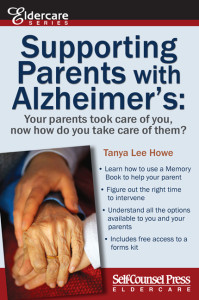Helping a Person with Alzheimer's Disease to Manage Triggers
If you're a caregiver for a person with Alzheimer's disease, you know how overwhelming and confusing this disease is. On this World Alzheimer's Day (September 21) let's spread awareness about how one can help a person manage their mood swings.
A person with Alzheimer's Disease (AD) is prone to mood swings, which can be triggered by a variety of things.
 As the AD progresses you may find your loved one becomes easily agitated and can become angry for what you believe is no logical reason for it. However, your loved one does have something that is causing him or her to feel stressed. It could be something that happened to him or her days or weeks ago and now the information is just being processed in his or her mind. The person may not even know why he or she is upset. Or, maybe he or she is having a physical problem such as a constipation or dehydration or even his or her medication isn't working properly. The important thing is to try to understand what the problem is so you can help the person work through it.
As the AD progresses you may find your loved one becomes easily agitated and can become angry for what you believe is no logical reason for it. However, your loved one does have something that is causing him or her to feel stressed. It could be something that happened to him or her days or weeks ago and now the information is just being processed in his or her mind. The person may not even know why he or she is upset. Or, maybe he or she is having a physical problem such as a constipation or dehydration or even his or her medication isn't working properly. The important thing is to try to understand what the problem is so you can help the person work through it.
You need to keep calm during a bad episode. If the person is yelling at you, step back and don't yell back. Yelling at a person with AD creates stress and stress makes the memory worse, which leads to more frustration, confusion, and anger.
If possible, during a bad episode, try to change the subject to something more lighthearted. When the person has calmed down, or even a day or two later, you may want to delicately approach the subject again to get to the bottom of the problem so you can prevent another similar episode in the future.
What causes triggers?
Triggers can be cause by various situations and circumstances. Here's a list of some of the most common triggers:
Stress.
Fatigue.
Confusion.
Pain or sickness.
Noisy, public areas with crowds or big family events. Big groups can be overwhelming to the person with AD so if you notice your parent becoming uncomfortable, ask him or her if he or she would like to leave or move to a quieter area.
Yelling or loud noises or loud music.
Children's toys that have loud sirens or clanking noises.
Pressuring the person to hurry; for example, you need to get your child to hockey practice on time but your parent isn't moving quickly. Learn to schedule enough time for procrastination and give him or her at least a half-hour warning.
Making demands on the person. Don't test or push the person for answers because that causes stress and stress causes memory loss, which is frustrating.
Weather conditions.
Trivializing what is going on in the person's life. Don't say, "I understand what you are going through" because you don't. Unless you have Alzheimer's disease, there is no possible way you could understand exactly what the person is going through. Just listen to what the person has to say.
Are you taking care of a parent with Alzheimer's disease (AD) and don't know how to help them? Tanya Lee Howe shares her experience of taking care of her Mom in Supporting Parents with Alzheimer's. Howe provides readers with useful tools and valuable ideas on how to handle caring for someone with AD.





